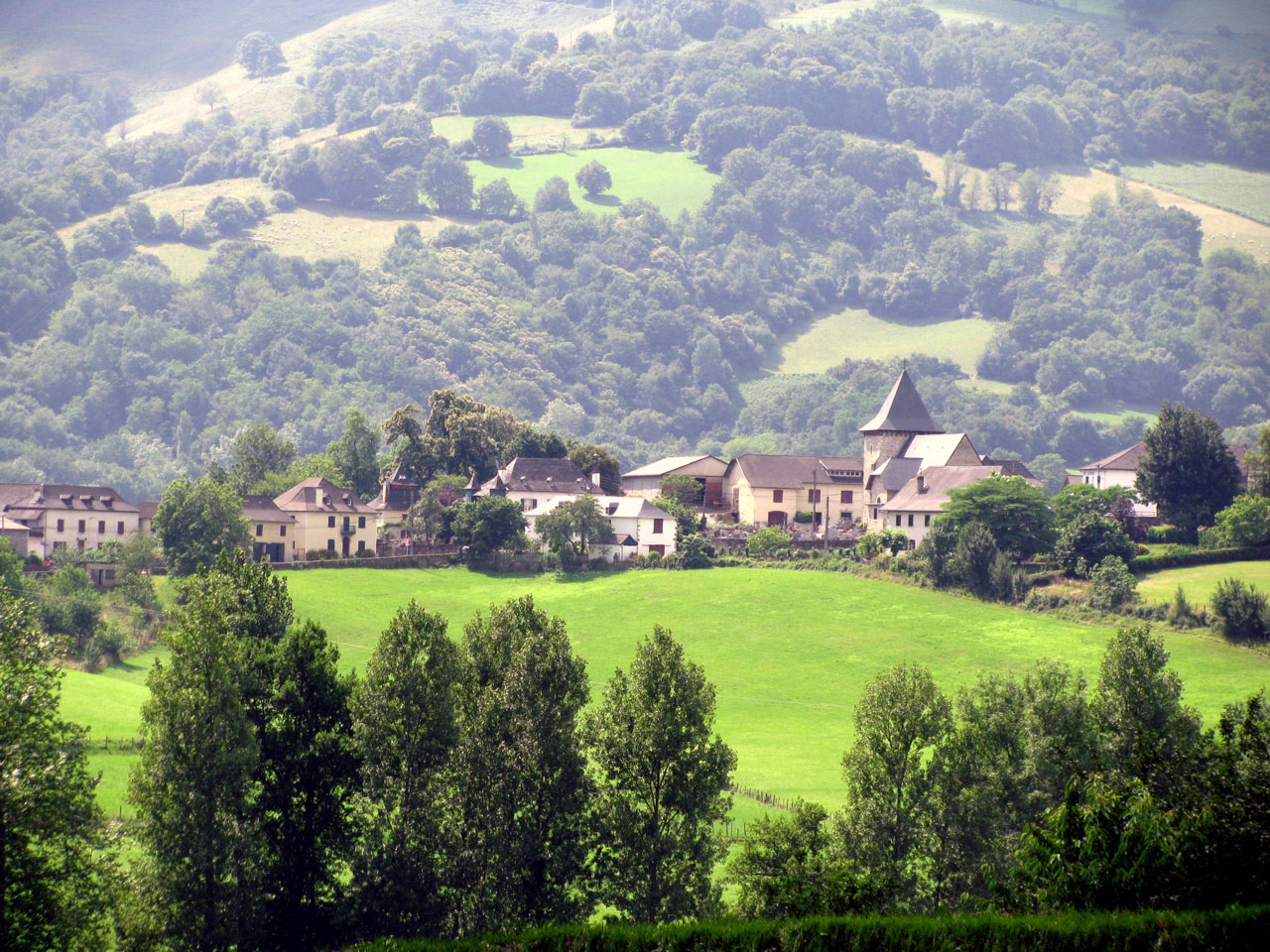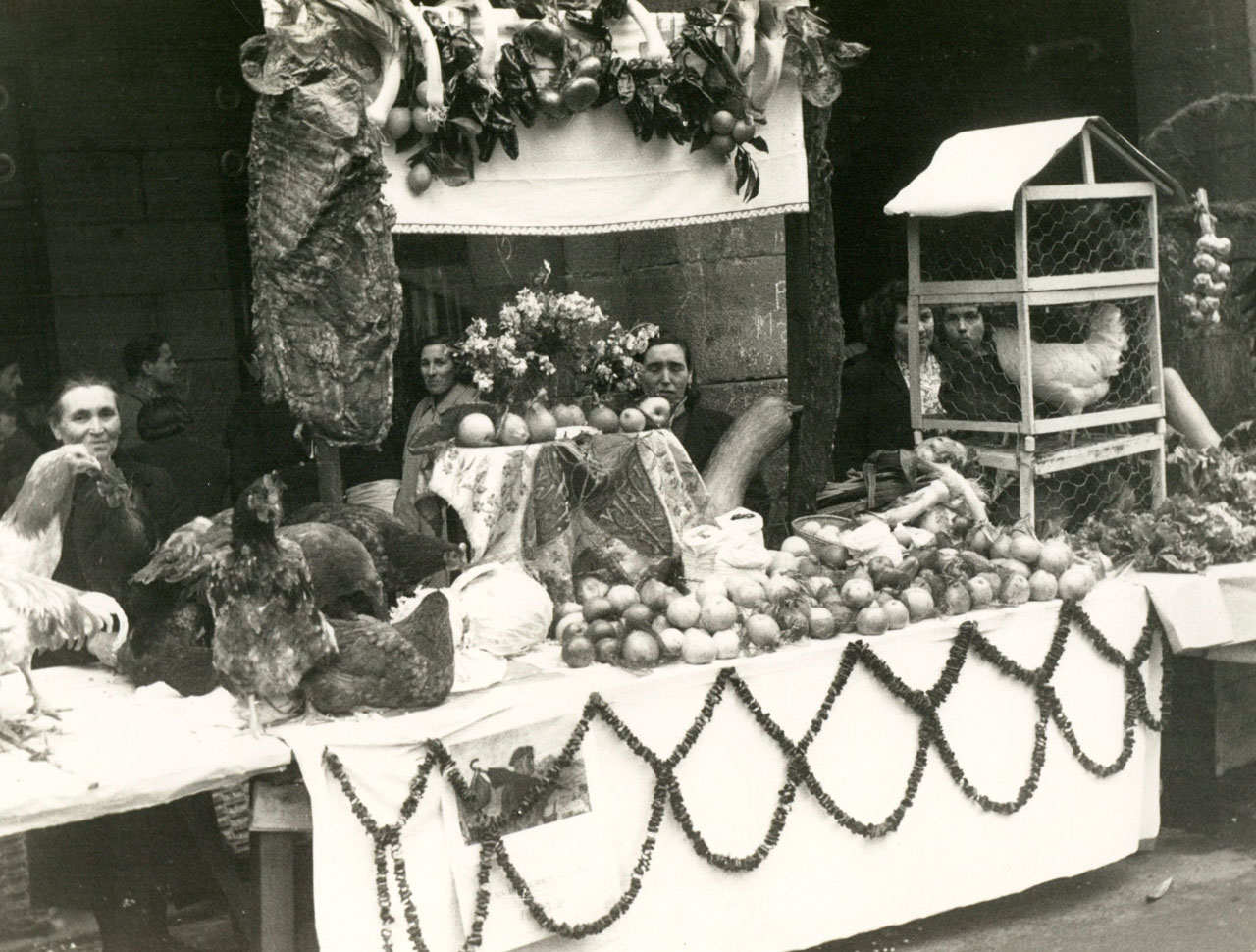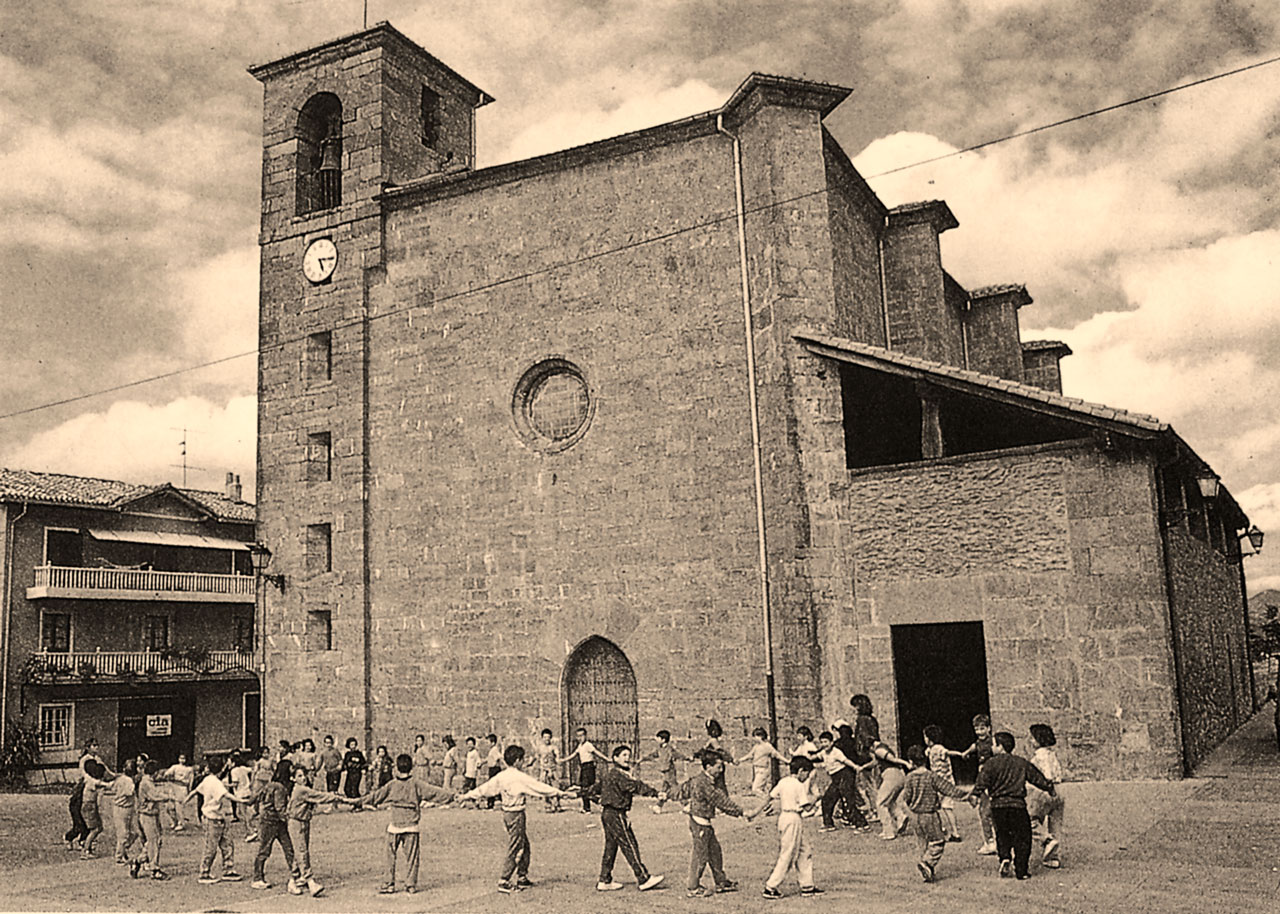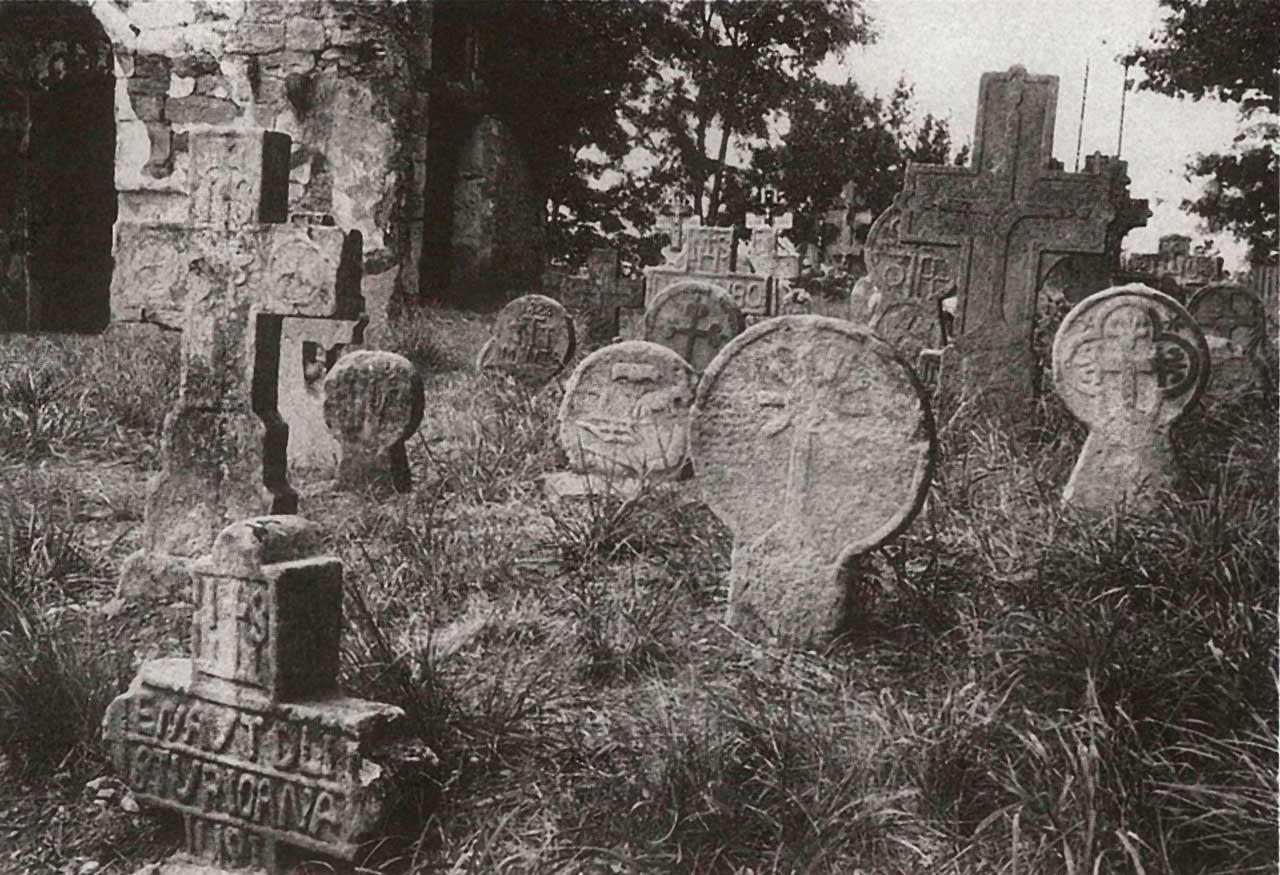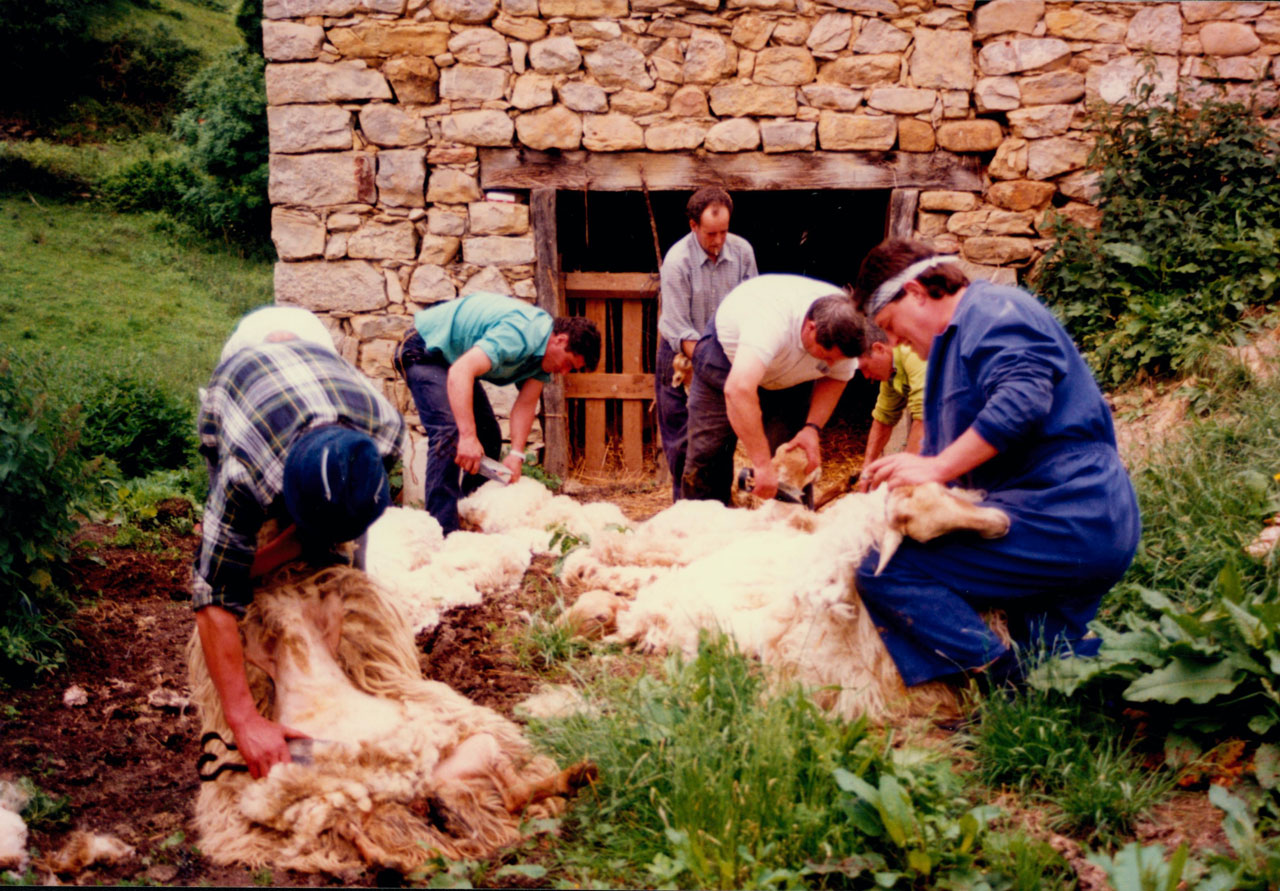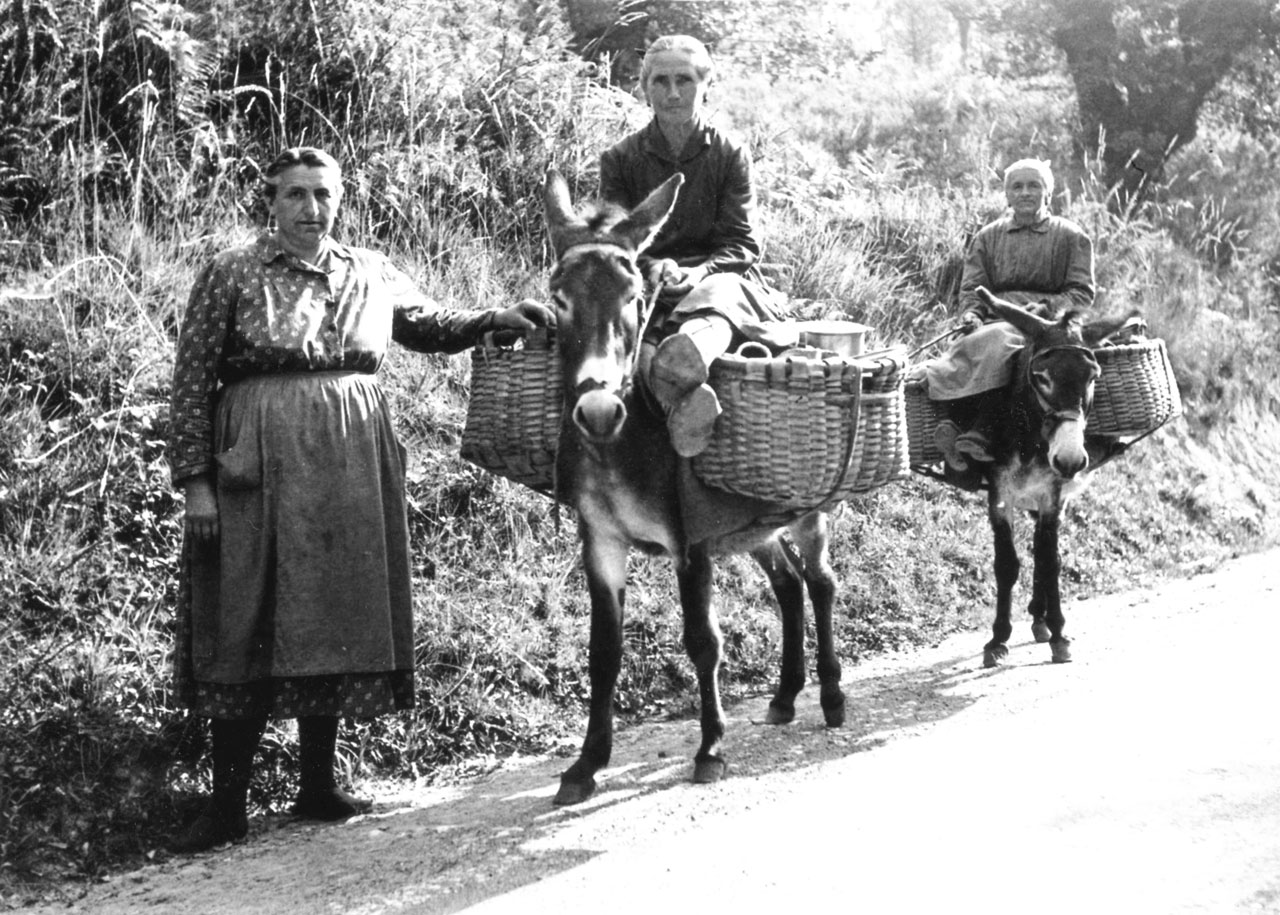Diferencia entre revisiones de «Main Page/en»
De Atlas Etnográfico de Vasconia
(Página creada con «====[/atlas/agricultura/Siega-de-trigo-Gesaltza-1950.jpg|Wheat harvest. Gesaltza (G), c. 1950. Source: Municipal Archive of Vitoria-Gasteiz: Enrique Guinea Collection.|Sats...») |
|||
| Línea 2: | Línea 2: | ||
<languages /> | <languages /> | ||
| − | |||
| − | |||
{{DISPLAYTITLE: Ethnographic Atlas of the Basque Country}} | {{DISPLAYTITLE: Ethnographic Atlas of the Basque Country}} | ||
Revisión actual del 16:55 11 mar 2020
House and Family in the Basque Country


House and Family in the Basque Country
“It has quite rightly been said, therefore, that any human settlement is the amalgamation of a little humanity, a little land and a little water.”
J. M. Barandiaran
Family Diet in the Basque Country


Family Diet in the Basque Country
Gabon, bon-bon; Natibitate, ase eta bete; San Estebantxe, lehen letxe. Eat heartily on Christmas Eve; until you feel full at Christmas; and back to normal on St Stephen’s Day.
Children’s Games in the Basque Country


Children’s Games in the Basque Country
Korruka Al corro de las patatas, naranjas y limones, como comen los señores, alupé, alupé, sentadito me quedé.
Traditional Medicine in the Basque Country


Traditional Medicine in the Basque Country
Kirkila bat eta kirkila bi, kirkilak dira hamabi: hamabitik hamaikara, hamaikatik hamarrera, hamarretik bederatzira, bederatzitik zortzira, zortzitik zazpira, zazpitik seira, seitik bostera, bostetik laura, lautik hirura, hirutik bira, bitik batera, batetik bapezera. Formula for scrofula treatment
Nuclear family. Artea (B), c. 1930. Source: Labayru Fundazioa Photograhic Archive: Felipe Manterola Collection.
Rites from Birth to Marriage in the Basque Country


Rites from Birth to Marriage in the Basque Country
Any bachelor, or spinster, traditionally continued to be linked to the homestead and to be an integral part of the family.
Funeral Rites in the Basque Country


Funeral Rites in the Basque Country
Oilarrak gauez kukurruku jotzen badu, laster izango da gorpuren bat etxe hartan. A cockerel crowing at sunset, death is looming.
Traditional sheep shearing. Carranza (B), 1998. Source: Miguel Sabino Díaz, Etniker Euskalerria Groups.
Livestock Farming and Shepherding in the Basque Country


Livestock Farming and Shepherding in the Basque Country
Grullas p’arriba, pastor buena vida, Grullas p’abajo, pastor más trabajo.When cranes fly north, life is easier for shepherds, when they fly south, work is harder for shepherds.
Agriculture in the Basque Country


Agriculture in the Basque Country
Our rural folk and our ancestors knew and practised agriculture on a more human scale and from a more holistic approach; it is not only the yield that matters, but also the complex network of physical factors and human beings involved in an activity that is actually based on cultivating the life that feeds us.
